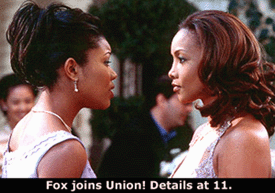Final Fantasy: The Spirits Within (2001) [Special Edition] – DVD
***/**** Image A+ Sound A Extras B
starring the voices of Alec Baldwin, Steve Buscemi, Peri Gilpin, Ming-Na
screenplay by Al Reinert and Hironobu Sakaguchi and Jeff Vintar
directed by Hironobu Sakaguchi
by Walter Chaw So the dialogue’s not so bad (having seen Pearl Harbor), the story’s not so obscure (having seen Akira), and the voice acting’s pretty decent (having listened to Claire Danes do San in Princess Mononoke). It almost goes without saying that the film is hands-down the best ever based on a videogame, and that Squaresoft’s 3-D captured animation is breathtaking and exciting, not just for the fact of itself but for what it portends of big-budget Stateside anime. What Final Fantasy: The Spirits Within reminded me of the most is Katsuhiro Ôtomo’s seminal 1988 anime Akira, and the revolution Akira heralded for the popularity and scope of the anime genre in Japan.*

